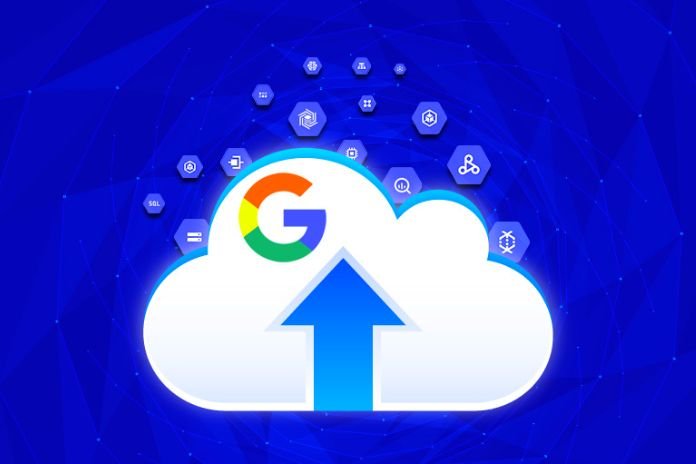Google Cloud: In the digital age, the use of cloud platforms is nothing new. However, the search for these solutions increased during the pandemic, opening a new space in the digital revolution, reinventing business, and accelerating the digital transformation of companies.
In the current scenario, those who do not migrate at least part of their work processes to the cloud are not able to develop all the value of the business, as the work is performed less efficiently, with less focus on the customer, and with less preparation to accompany virtualization in the world and take an active part in it.
For some companies, this scenario is still new, generating many doubts and insecurities and requiring time for study and planning before migrating to the cloud. Leaders must observe the type of technology, security, the complexity of the platform, legislation, and human aspects when planning to implement solutions.
This is no surprise, as, in short, the cloud entry process must balance functionality, speed, and value, which must be aligned with business strategies.
Thinking about the functionality of a platform that meets the current needs of companies in a virtualized world, we will talk about the proposals and potential of one of the leading platforms currently used for cloud services, the GCP (Google Cloud Platform), which has a variety of services such as GKE (Google Kubernetes Engine), GCE (Google Compute Engine), and GAS (Google Apps Script).
What Is GKE (Google Kubernetes Engine)?
GKE, or Google Kubernetes Engine, is the environment for deploying, scaling and managing containerized applications using the GCP infrastructure. The advantage of Kubernetes is the portability and mobility of applications, which can move between clouds and operating systems.
This is due to containerization that works like a virtual machine, with the difference that this method contains only the code necessary for that specific application to run independently, without affecting other applications or the system itself.
What Is GAS (Google Apps Script)?
Google Apps Script, or GAS, is a JavaScript-based language that allows users to make changes and customize Google Workspace products such as documents and spreadsheets. For example, you can add custom menus, dialog boxes, and sidebars.
In addition, it is also possible to turn documents made using Google tools into an Android add-on. This way, it is possible to exchange data between spreadsheets, for example, using a mobile device.
What Is GCP (Google Cloud Platform)?
GCP is a Google Cloud Computing service that provides an infrastructure for executing cloud services, such as storage, software management, and other services that facilitate a company’s activities. Access to resources on the platform aligns security, performance, and customization in executing every day and high-complexity tasks, such as creating websites and applications or projects that deal with Big Data and Machine Learning, for example.
Some of the primary services offered include:
- Google Cloud Storage: Maintains the identity and structure of the provided data classes. It serves as an all-purpose object storage space.
- Google Compute Engine: Hosting Virtual Machines.
- Google Apps Engine: Assists in building apps remotely in any language. “Cloud natives” are applications that can be designed, tested, and deployed in that environment.
- Authors: Allows Google multi-cloud implementation.
- Google Apps Script: As seen earlier, GAS allows JavaScript changes and customizations in Google Workspace products.
- Google Kubernetes Engine: Meanwhile, GKE takes care of managing and hosting containerized applications, which can run on any system or server with the necessary infrastructure to support them. It is a more flexible and modern form of virtualization.
What Are The Strengths Of GCP (Google Cloud Platform)?
The main benefit of using all cloud server solutions is the optimization of resources since there is no need for physical spaces to install equipment, which reduces costs and time.
The high scalability in the systems is also an advantage, as it allows them to adapt to the use and needs of the organization without the need for reinvestment and bureaucracy in infrastructure adjustments. However, some exciting points set GCP apart from other platforms:
- Strong online advertising: GCP relies on Google Analytics, whose primary function is to collect large amounts of data with access information, behavior, and navigation of users on websites and applications, organizing everything into specific reports. This helps companies make decisions in a data-driven context and improves marketing strategies.
- A leader in automation and innovation in application deployment: Google was the company that designed Kubernetes, an application orchestrator system composed of several components organized in containers. Although other platforms, such as AWS and Azure, currently also work with this feature, each with its specificities, Google differentiates itself by thinking of global service software; that is, the objective is to make it accessible for use by small and large companies. . Also, unlike AWS and Azure, which have Kubernetes systems centered on Amazon and Microsoft, respectively, GCP has the greater goal of meeting specific customer needs without locking them in. These factors place GCP in the lead in Kubernetes systems.
- Low-latency global network: Google Cloud has one of the largest networks in the world. GCP customers can build globally serving applications without complex design and infrastructure mechanisms, as VPC networks reach all customer regions.
- Best choice for first-time users: For small businesses or companies taking their first steps in cloud service platforms, it can seem quite challenging to deal with non-physical servers and many new and complex tools. GCP is a support point for these companies because it offers details and step-by-step infrastructure installations and configurations.
- Live migration for virtual machines: This is a solid platform point. It allows customers to always be up to date with their VMs, without compromising performance during the migration.
Although GCP offers several benefits, especially for start-ups, all cloud solution platforms have specificities, with advantages and disadvantages. When deciding between them, the most important thing is understanding what each offers and which alternative best fits your business. Costs, technologies, and functionalities can weigh much if not designed according to your company’s purposes.












